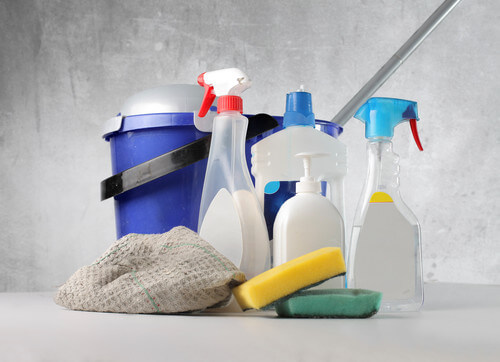10 Surprising Causes of Poor Indoor Air Quality

Did you skip out on spring cleaning this year? No worries, there’s still time to get it done! One aspect of spring cleaning and maintenance that some homeowners overlook is HVAC maintenance. Without having necessary annual HVAC inspections and preventative maintenance done, you could end up with poor indoor air quality in your Atlanta home. In fact, there are a few sources of poor indoor air quality that just might surprise you.
Surprising Causes of Poor Indoor Air Quality
1. Air Fresheners -Studies have found that people with asthma can be very sensitive to air fresheners, which often contain phthalates. Instead of using store-bought air fresheners, consider natural alternatives, such as using natural herbs to make your home smell fragrant.
2. Radon -A dangerous and odorless gas, radon can enter your home through your foundation where it seeps in through decayed rocks and soil. Radon is known to cause lung cancer, so you want to make sure your foundation is solid and without cracks.
3. Gas Appliances -Your gas appliances, such as ovens and furnaces, can release carbon monoxide into the air. Carbon monoxide, in large enough amounts, can be deadly and is completely odorless. Be sure to install a carbon monoxide alarm in your home, if you haven’t done so already.
4. Dry-Cleaned Clothes -If you have clothes dry-cleaned regularly, be careful. Chemicals used in dry cleaning can be quite dangerous when inhaled. This is why it’s generally best to air out dry-cleaned clothes for a few days before you decide to wear them.
5. Cleaning Products -Be on the lookout for those household cleaning products that contain ammonia and chlorine, the fumes of which can lower your indoor air quality. Whenever possible, clean with natural products like baking soda, vinegar and hot water, or air out rooms after you’ve used cleaners containing those chemicals.
6. Non-Stick Cookware -Teflon cookware is very popular and can save you a lot of time and hassle when it comes to cleaning off caked-on food. However, when exposed to high temperatures, non-stick cookware can emit harmful fumes, so avoid placing this type of cookware in the oven.
7. Arts & Crafts -Taking part in arts and crafts activities can be a lot of fun, but it’s best to work outdoors when dealing with paints, glues and markers. These products can emit fumes that are harmful to the body’s respiratory system.
8. Interior Paint -When painting, always use a paint or paint stripper with a low VOC rating, which will reduce fumes that harm your air quality. Furthermore, make sure you paint in a well-ventilated area by opening windows and running fans.
9. New Carpeting -New carpeting and padding often contains particles that can irritate the throat after installed; consider asking that your carpeting be unrolled and aired out several days before your scheduled installation appointment.
10. Furniture -Finally, if you have pressed wood furniture in your home, be careful; these materials are known to contain formaldehyde, which is harmful to the throat and lungs. The newer the product, the more potential for formaldehyde, so consider buying a floor model.
Let Empire HVAC Help Improve Your Indoor Air Quality
Want to further improve your indoor air quality? Empire HVAC can help make it happen. We offer many products to ensure you are breathing easily in your home. If you suffer from asthma or allergies, our technicians will test your air quality and then find and put solutions in place. Give us a call today to start working on improving your indoor air quality in Atlanta.
Image courtesy of: Shutterstock

